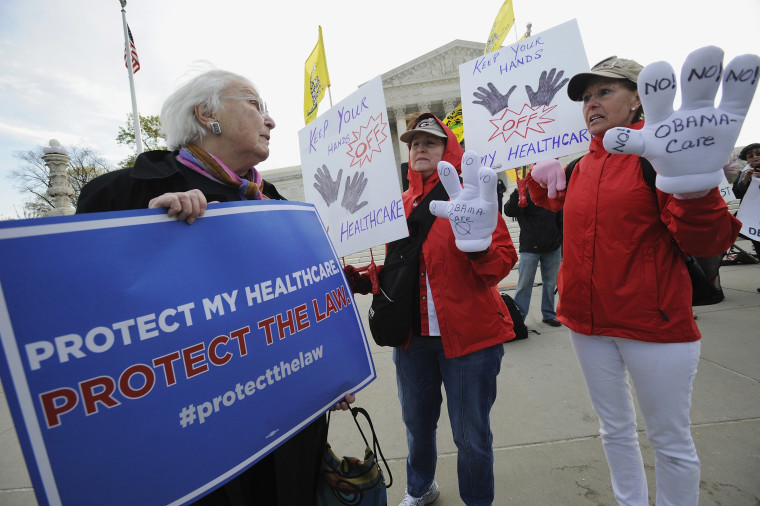Those who pay close attention to current events no doubt realize that, before the end of the month, the Supreme Court will rule on a case called King v. Burwell. For millions of families, the decision will be critically important -- for some, it may even be a matter of life and death.
But the fact remains that much of the public doesn't pay close attention to current events. The Kaiser Family Foundation's
new report suggests most Americans have no idea there's an iceberg ahead, and the high court may be aiming right for it.
Most of the public continues to say they have not heard much about the case. About 7 in 10 say they've heard only a little (28 percent) or nothing at all (44 percent) about the case. Fourteen percent say they've heard something about it and 13 percent say they've heard a lot about the case. These shares are slightly higher than late last year when the Supreme Court announced they would take the case and earlier this year when the Court heard arguments, but still most say they haven't heard much about the case.
That's no small detail. Possibly as early as Thursday, several Republican justices may tell 6 million Americans, "Sorry, we've decided you'll no longer be able to afford health security." And many of those 6 million have no idea this possibility is looming.
We've been raising the prospect of systemic chaos for quite a while, and these national survey results reinforce the threat: if five partisan jurists take a brazenly stupid case seriously, states aren't prepared to address the ensuing mess; federal lawmakers have made no plans on how to proceed; and millions of consumers will be very surprised to learn their coverage is suddenly unaffordable because some Republicans on the Supreme Court say so.
As for the political implications, it's certainly possible the public, upon learning about all of this, will blame Republicans -- after all, it was Republicans who filed this ridiculous lawsuit; Republicans who championed the case; Republicans who filed briefs with the court pleading with the justices to rule against consumers; and Republican judges who might swing the sledgehammer at the American health care system.
But there's also that other possibility. The
Washington Post's Greg Sargent considered the prospect of Republicans rolling out "
the old Obamacare Fog Machine" for another run.
Republicans could pass something that temporarily extends subsidies but also repeals the individual mandate, and once Obama vetoes it, blame him for killing their effort to help all those millions of people. More generally, they can blame Obamacare itself for kicking all those millions off of Obamacare, and then argue that this is another way the law continues to victimize Americans, an argument they are already experimenting with rather creatively. These narratives are of course tortured and incoherent, and Democrats may be able to break through the clutter by pointing out that the problem could be fixed very easily if Republicans wanted to join Dems in doing so.
Or maybe not. It may also depend on just many media professionals tell the public "both sides are to blame."
Watch this space.
